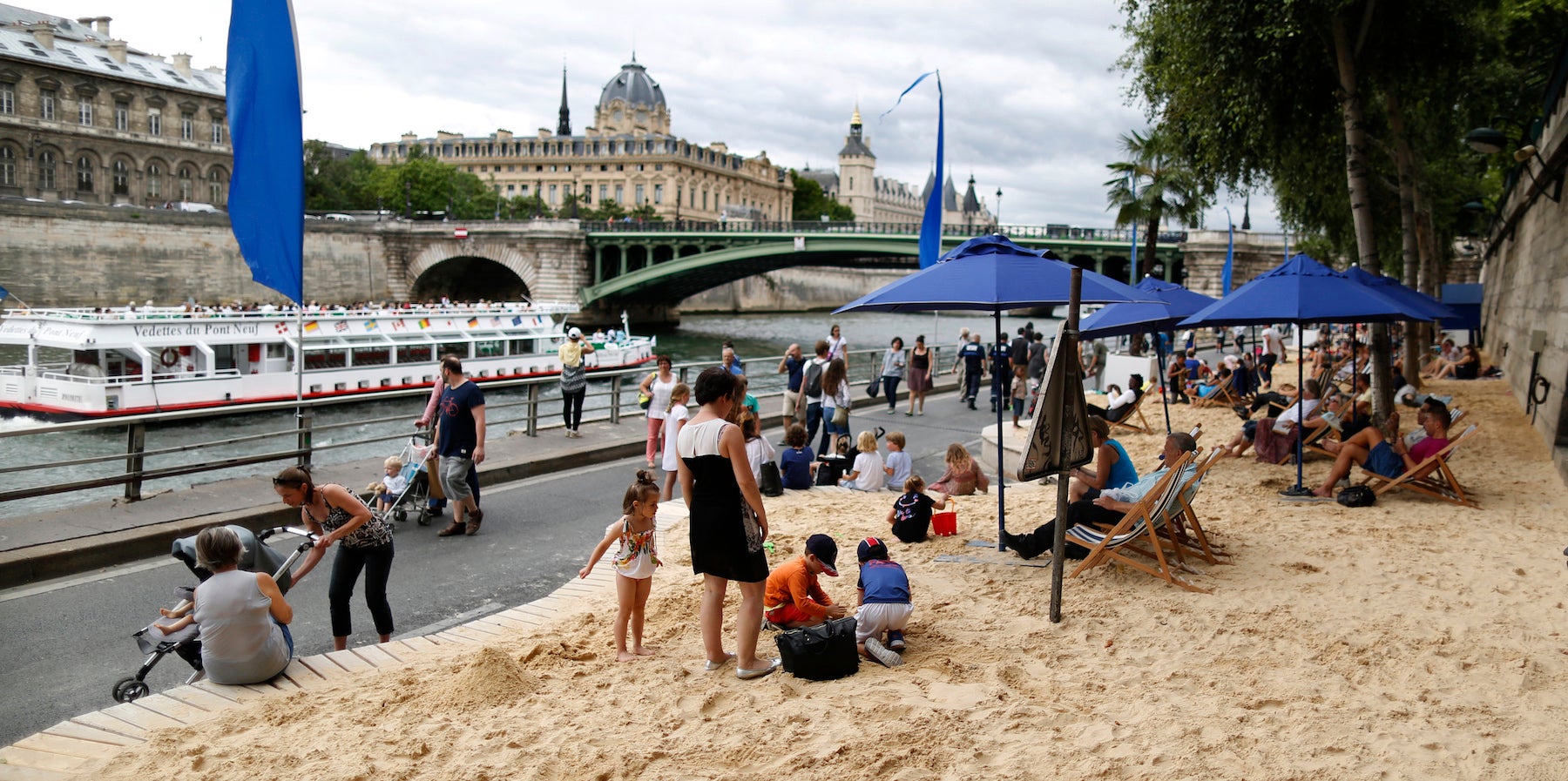When Israel is involved, even trips to the beach become controversial in France
What could be more relaxing than a trip to the beach? Well, maybe not in France.


What could be more relaxing than a trip to the beach? Well, maybe not in France.
Last month, King Salman of Saudi Arabia and 1,000 of his closest friends were given permission to take over a public beach in the Côte d’Azur near Cannes. He eventually cut short his holiday amid the outrage it generated. But it wasn’t long until another furore over beach diplomacy broke out in France.
Since 2002, the banks of the Seine have been converted to sandy beaches—Paris-Plages—as a place for Parisians to relax and get away from the heat during the summer. This year, Paris is adopting a theme to each day, taking inspiration from famous beaches from around the world. After sites in Brazil and Polynesia, tomorrow (Aug. 13) it’s Tel Aviv’s turn. What could go wrong?
A pro-Palestinian organization called for protests if “this obscene event is not cancelled.” One local councillor, Danielle Simonnet, criticized it as “a nice bit of PR” for the Israeli government. On social media, people shared graphic images of children dead on the beaches of Gaza. A petition urging authorities to call off the day has gathered more than 22,000 signatures at the time of writing.
This fight over the branding of a man-made beach is also complicated by the fact that the mayor of Paris, Anne Hidalgo, hails from the French left, which has historically sided more with the Palestinian cause. Hidalgo, who visited Israel in May, has refused to back down and said “Tel Aviv sur Seine” will go ahead.
Writing in Le Monde (link in French), she sought to balance the feelings of local outrage towards Israel’s government with pleasing leftwing supporters. Showing political pragmatism, she justifies the choice of Tel Aviv partly by noting that the city itself is disliked for being progressive.”Tel Aviv remains a city open to all minorities, including sexual,” she wrote. “It’s creative, inclusive, in short a progressive city, hated in Israel as such by all who are intolerant.”
Why so much anger about some sand dumped on the banks of the Seine during a scorching summer? France has the largest proportion of Muslims in western Europe—7.5% of the population—and Paris has the largest number of Muslims of any major city (see table) in Europe. For large sections of the population, the Israeli-Palestine conflict in France is not academic or political—the issue is deeply personal.
In January, following the attacks on Charlie Hebdo, there was a minute’s silence for the victims observed across the country. At a school in Seine-Saint-Denis in Paris, more than 80% of pupils refused; others said they would observe the moment in memory of Palestinian victims of the conflict, not the Charlie Hebdo staff who “deserved what they got.” Others thought the attack on the magazine was staged to make Muslims look bad.
And indeed, Simonnet represents the immigrant-heavy 20th arrondissement of Paris. It seems that anything that casts Israel in a good light can be provocative in modern France.